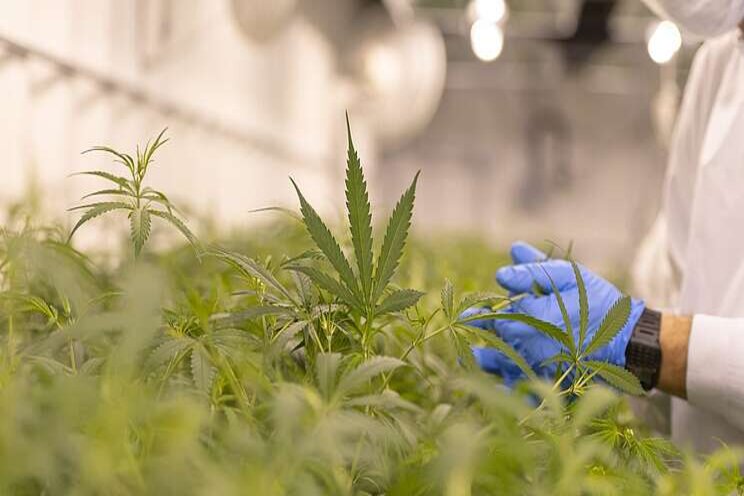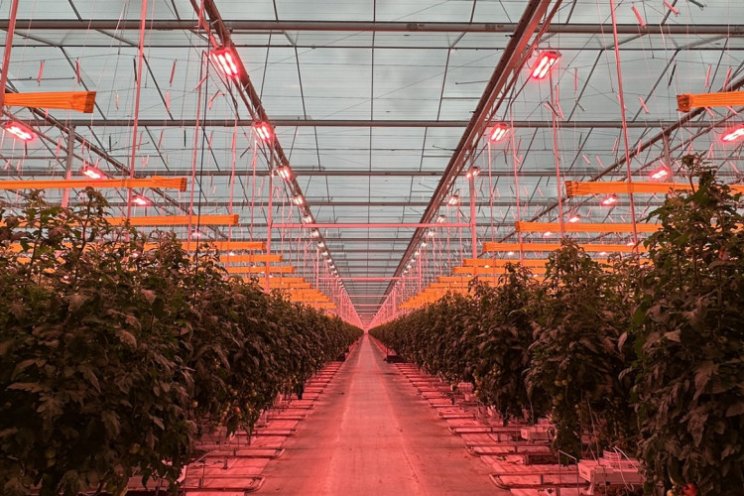How to maintain compliance at cannabis cultivation sites
Added on 13 December 2020

Cannabis Cultivation Compliance Best Practices
Make safety a priority
There are various biological, chemical, and physical hazards present at cannabis cultivation sites and the safety and health of employees should be prioritized to avoid illness and injury. To avoid an OSHA violation and/or a workplace incident, it's important to perform a job hazard analysis, create a workplace safety program, and train employees on identifying hazards and how to remedy them. Should an incident occur, you may be required to report it to OSHA. Check with your insurance provider's loss prevention specialist to determine your reporting requirements.
Adhere to pesticide & chemical usage regulations
Each state has specific pesticide usage, storage, and application requirements that all pesticide handlers must follow. Additionally, OSHA's Hazard Communication Standard requires a business that handles chemicals to train staff on safety data sheets, classifications, and labels. Reference the EPA's Worker Protection Standard for Agricultural Pesticides for details on how to keep your employees safe and keep your business compliant with pesticide and chemicals usage.
Enforce proper sanitation and storage protocols
At a cultivation site, cleaning, sanitation, and disinfection are essential in both creating a healthy work environment and preventing contamination of your cannabis product and grow areas. Additionally, storing cannabis in a clean, dry, and pest-free area is critical and required by CFR Title 21 for the manufacturing, packing, or holding human food. In order to adhere to sanitation and storage regulations and best practices, it's necessary to implement health, sanitation, and storage protocols to ensure you're in compliance with regulations and that your business continues offering high-quality cannabis products.
Secure an inventory management system
Seed to sale tracking is required by every state that regulates cannabis in the country. This means that your business needs to account for every seed, clone, plant, gram, and unit. Regulators want to be able to look at the end product and determine where the cannabis was grown, how it was grown, etc. This helps verify that your product is safe, legitimate, legal, and helps prevent theft.
Ensure that you invest in a proper inventory and tracking system that has all regulatory requirements built in and is able to track product from seed to sale. The inventory system should also include auditing and reporting tools that generate the product sales reports necessary to pay taxes.
Document and store accurate records
Accurate documentation and record keeping will not only keep you organized, but it will also help to show local and state regulators that you are maintaining compliance. This includes records for processes, licensing applications, inventory control, pesticide application, surveillance, employees, transactions, financials, etc. It's crucial to invest in a document storage system that enables you to search and find records easily and that is secure from unauthorized access.
Prepare for an inspection with a self-audit
By nature of the business, cannabis businesses are subject to many different auditors and inspectors, including OSHA, the EPA, the state's cannabis licensing body, labor department, etc. Conducting a self-audit can help you uncover mistakes, errors, or process gaps to address and resolve prior to a government agency discovering them and potentially penalizes you for infractions. Try to self-audit at least once per month and bring in a third-party quarterly or every six months to ensure nothing is overlooked.
Get Expert Compliance Guidance and Avoid Legal Trouble
Compliance is a significant responsibility that cultivation businesses must also fulfill. There is too much to risk otherwise. But, because compliance is a moving target, businesses often feel discouraged as they invest time and resources only for their efforts to fall short of meeting 100% compliance. That's why it's important to consult with experts in cannabis compliance, so that your business doesn't have to worry about making mistakes or errors that can get you into legal trouble.
OROleafhr partners with cannabis businesses like yours to fulfill its legal and compliance needs. The team of experts at OROleafhr have an extensive background in cannabis and employment laws and dedicate their time to staying current on legislation. We ensure your business is always in good standing with the law.
Contact OROleafhr to develop a compliance solution for your business.
Source and Photo Courtesy of OROleafhr
Source: OROleafhr
More news















